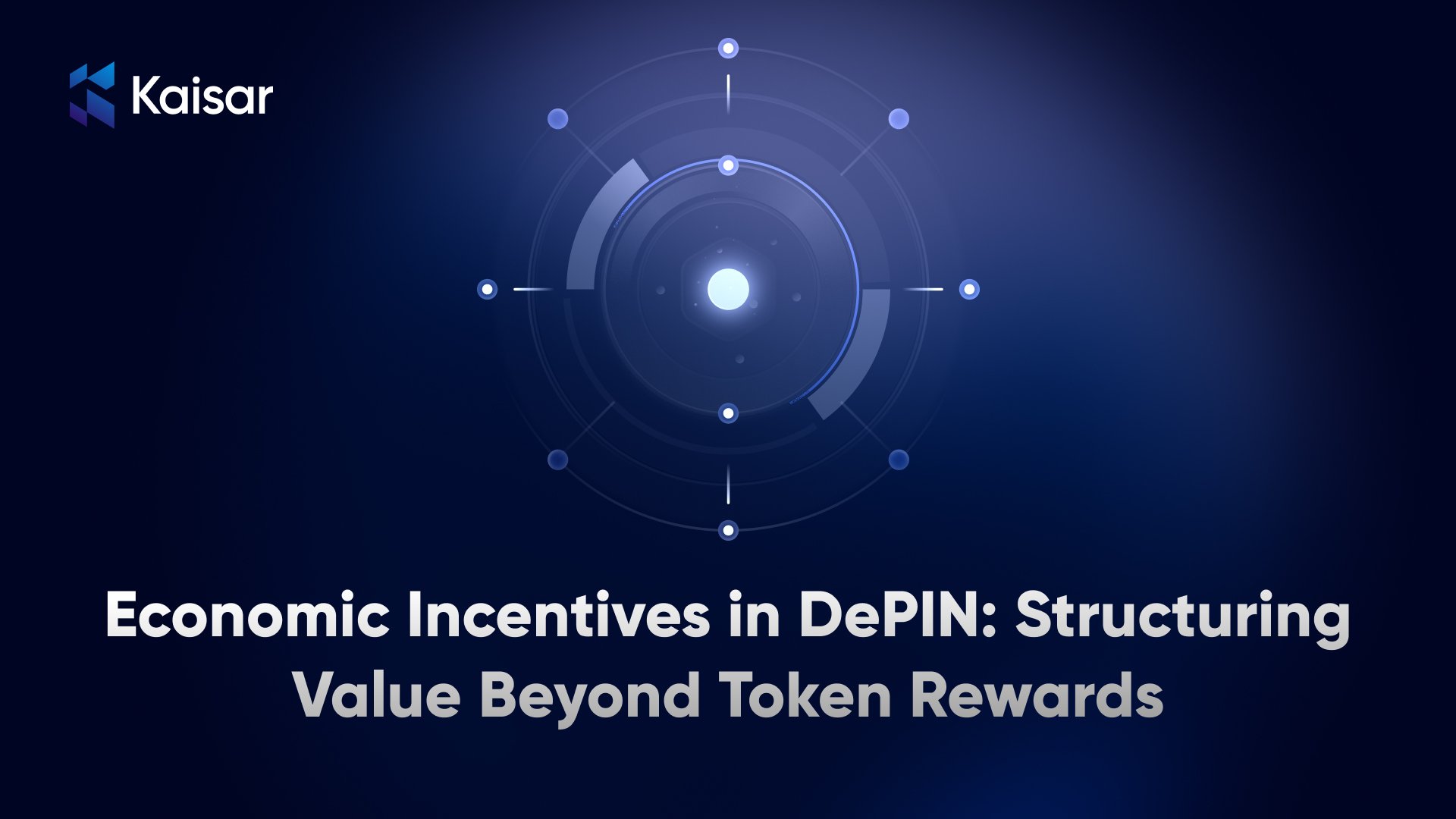DePIN (Decentralized Physical Infrastructure Networks) represents a new wave in blockchain, enabling people to build and share physical infrastructure like compute power, wireless networks, or storage—without relying on centralized companies.
Instead of owning and managing infrastructure alone, participants in a DePIN network collaborate, contribute, and earn based on shared value.
In this article, we explore why token rewards alone are no longer enough, and how DePIN projects can build smarter, longer-lasting incentive models.
Challenges of Token-Only DePIN Incentive Models
When DePIN projects launch, token rewards are the main value creation mechanism driving user participation. Tokens are distributed to users for activities contributing to DePIN such as: setting up hardware, verifying data, maintaining service uptime, and expanding networks.
While this mechanism fulfils the demand/supply curve in short term, it also has several downsides:
- High volatility: Token prices can skyrocket and plummet because of which participants can hinder the project if the market price of the token drops.
- Short-term thinking: Given the nature of token rewards is instantly and relatively liquid, it is easy for contributors to move to short-term profit versus sustaining action for long- term network health.
- Quantity over quality: Token rewards are often distributed automatically or based on participation or staking, This process can incentivize contributors to maximize quantity over quality of service of DePIN.
Building Sustainable Economic Incentives
Incentive models focusing solely on token economics can lead to misaligned actions discussed above. To build networks that works in long run, DePIN projects can create structured, and layered incentive systems.
Equity and Ownership
Participants can hold equity stakes tied to the network’s future cashflows or real-world assets. For example, when someone operates a node or deploys hardware, they should share in the upstream revenue generated by the services and overall business operations of network.
Having equity stake-type rewards can change the engagement psychology from short-term token rewards to a long term stakeholder success of a project.
Governance Incentives
Active contributors should expect to have real power to influence protocol upgrades, partnerships, revenue models, and policy decisions. Especially for a token where there are clear economic impacts, creating a strong incentive to stick around and participate in the growth of the network is essential.
Reputation-Based Rewards
When you have a service that can be demonstrated to have real-world impacts (e.g., implementing wireless networks, supporting sustainable energy grids, unauthorized compute power), there is intrinsic motivation to participate since participants aren’t just “earning tokens”, but actually building the critical infrastructure that society needs.
Additionally, a reputation system in conjunction with agreed performance metrics can unlock new features within the network. For instance, a high-reputation operator could earn premium rates, as partners.
Tiered Access and Performance-Based DePIN
Developing a tiered structure; those that perform at a higher quality level in a DePIN can have exclusive access to future deployments, early access to new technology modules, and access to a larger allocation of revenue share.
In this way, DePIN based ecosystem creates winners for consistency in excellence, rather than for occasional performance quality.
Conclusion
Economic incentives fuel DePIN networks, but as the space matures, token rewards alone are not enough to build the long-term growth, resilience, and innovation needed for decentralized infrastructure.
One of the biggest shifts DePIN projects need to make is changing the “mining” or “earning” mentality to a “wealth-building” and “ownership” mentality. Incentive models that encourage patience, skills, and collaboration, communities will usher a new class of digital- physical infrastructure companies.
This is precisely where DePIN brings its value proposition; it empowers contributors to be co-owners, collaborators and building a decentralized economy through ownership, governance, real-world impact, and reputation-driven opportunities
Power the Future of Decentralized Infrastructure with Kaisar
Kaisar Network is redefining the economics of DePIN by going beyond token-only incentives. We provide scalable, decentralized computing that provides you access to a global network of GPU resources, enabling faster, more affordable, and decentralized computing. Visit kaisar.io to get started.

